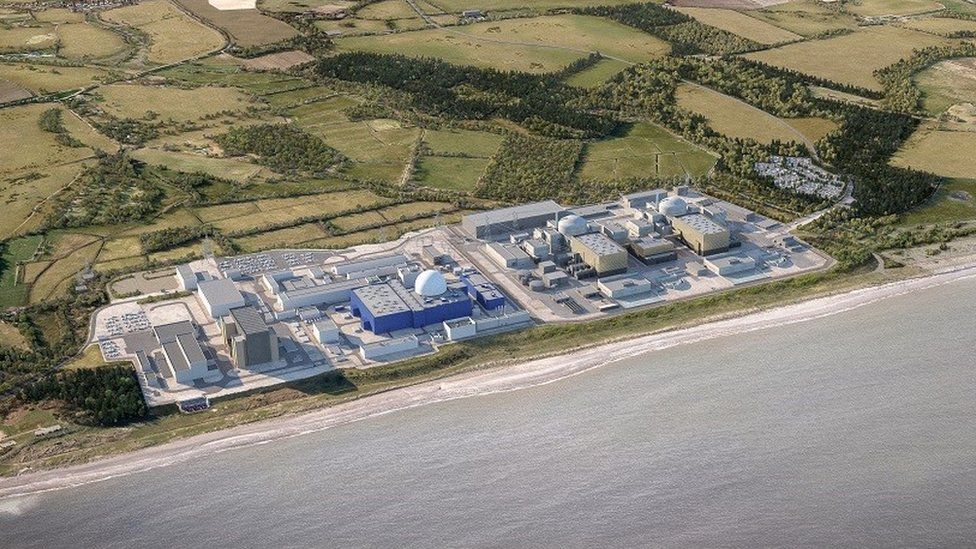 The UK Secretary of State for Business, Energy and Industrial Strategy (BEIS) has decided to extend to 20 July the statutory deadline for development consent made under the Planning Act 2008 by NNB Generation Company (SZC) Limited for the construction and operation of the Sizewell C nuclear power station near Leiston in Suffolk. A decision had been expected on 8 July. A statement confirming the new deadline was made to the House of Commons and House of Lords.
The UK Secretary of State for Business, Energy and Industrial Strategy (BEIS) has decided to extend to 20 July the statutory deadline for development consent made under the Planning Act 2008 by NNB Generation Company (SZC) Limited for the construction and operation of the Sizewell C nuclear power station near Leiston in Suffolk. A decision had been expected on 8 July. A statement confirming the new deadline was made to the House of Commons and House of Lords.
Paul Scully, Minister for London and Parliamentary Under Secretary of State (Minister for Small Business, Consumers and Labour Markets) told the House of Commons that the new deadline “is to ensure there is sufficient time to allow the Secretary of State to consider the proposal” and that it “is without prejudice to the decision on whether to grant or refuse development consent”. The government had previously been expected to announce a planning decision by 25 May, but it said it needed more time to look at new information and set the 8 July deadline.
The planned 3.2GWe Sizewell C plant, to be built by France energy company EDF would comprise two EPR reactors, similar to the Hinkley Point NPP under construction in Somerset, and is expected to cost about GBP20 billion. It would be built adjacent to Sizewell B NPP, which is still operating, and Sizewell A, which closed in 2006 and is being decommissioned. The government has already committed GBP100m to Sizewell C and plans to take a 20% stake although the project is meeting stiff resistance from some local residents and environmental groups.
The delay to the planning consent comes amid the collapse of the UK government following the resignation of Prime Minister Boris Johnson and after the French government announced its intention to nationalise EDF, which is facing financial difficulties.
Alison Downes, part of campaign group Stop Sizewell C, said it would have been “farcical” if a decision on Sizewell C had been made on 8 July. “We also hope that announcements of EDF’s re-nationalisation have given ministers pause, especially when EDF’s parlous finances are at least in part down to their disastrous track record at building the type of reactors proposed for Sizewell C.”
Hinkley Point C, being developed by EDF is being built by Laing O’Rourke, Bouygues and Balfour Beatty. However, it is delayed by two years and is GBP7 billion over budget. The EPR being built by EDF at unit 3 of the Flamanville NPP is 10 years behind schedule while costs have increased almost fourfold. The EPR being built by Areva-Siemens at unit 3 of the Olkiluoto NPP in Finland faced a series of delays and setbacks and is now due to begin commercial operation at the end of this year – some 12 years behind schedule and significantly over budget.
On 8 July the UK Environment Agency (EA) began a 12-week public consultation on three environmental permits for Sizewell C and is seeking feedback from the community and all stakeholders between 4 July and 25 September. NNB Generation Company (Sizewell C) applied for the permits in May 2020, and EA consulted on the applications from July to October 2020.
Each permit is an important regulatory permission that the company requires for the operation of the power station. They cover controls the company needs to put in place to ensure high standards of environmental protection during commissioning, operation and decommissioning.
If granted, the permits would allow Sizewell C to:
• dispose of and discharge radioactive waste (radioactive substances activity permit);
• operate standby power supply systems using diesel generators (combustion activity permit) and
• discharge cooling water and liquid effluent into the North Sea (water discharge activity permit).
EA Sizewell C project manager, Simon Barlow, said: “Our proposed decision is that we should issue the permits for the three operational activities, subject to the consultation process. These draft permits represent over 10 years of pre-application discussions with EDF SZC Co.” He added: “The company has applied for these permits many years ahead of the station operating. If we grant these permits early in the project, it will help us to positively influence the design, procurement, and commissioning of the power station, whilst also ensuring that the environment and wildlife is protected.”
EA said on its website: “We have assessed the risks to designated habitats and species and consider that the proposed activities will not have an adverse effect on European sites, or damage Sites of Special Scientific Interest (SSSI). Our consultation does not relate to the UK EPR design. It is not about the need for nuclear power, UK energy policy, the siting of nuclear power stations, nor the safety and security of the design.”






